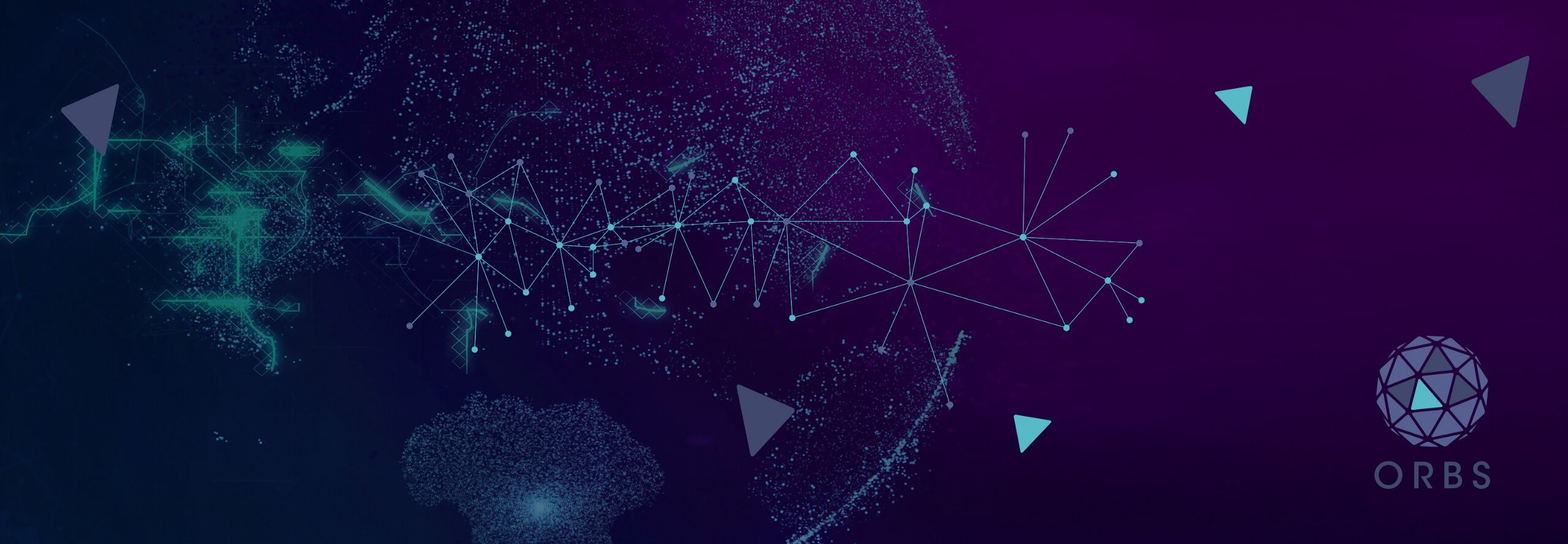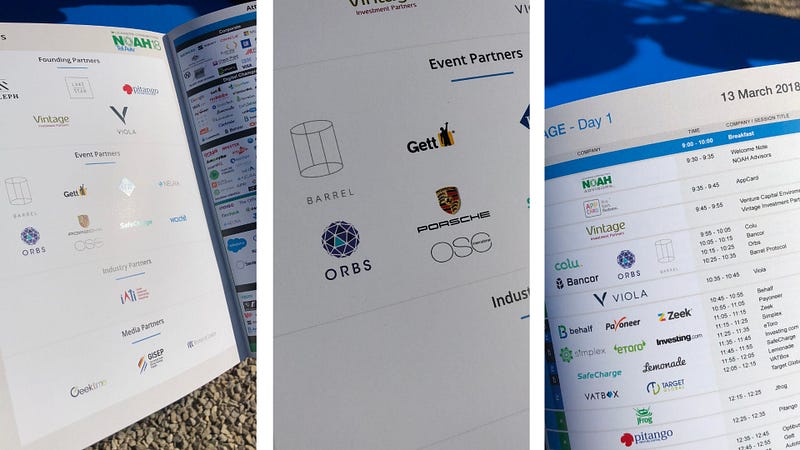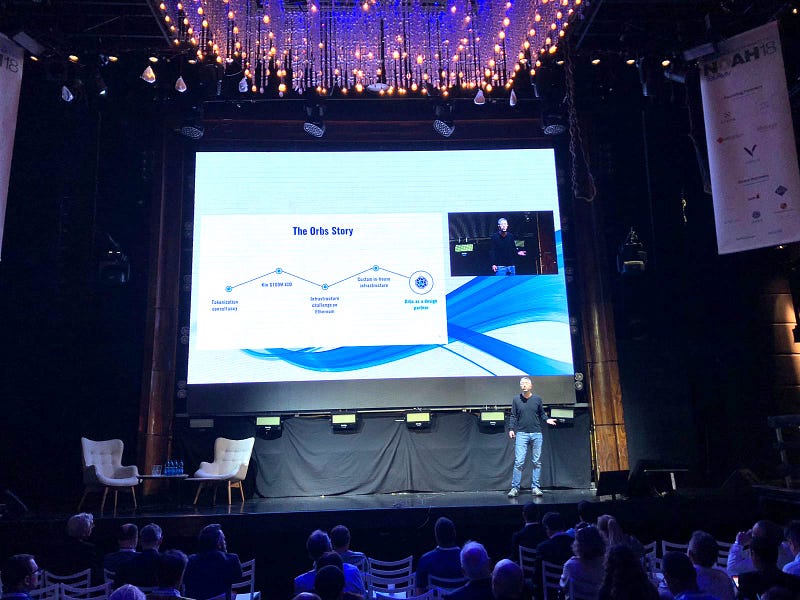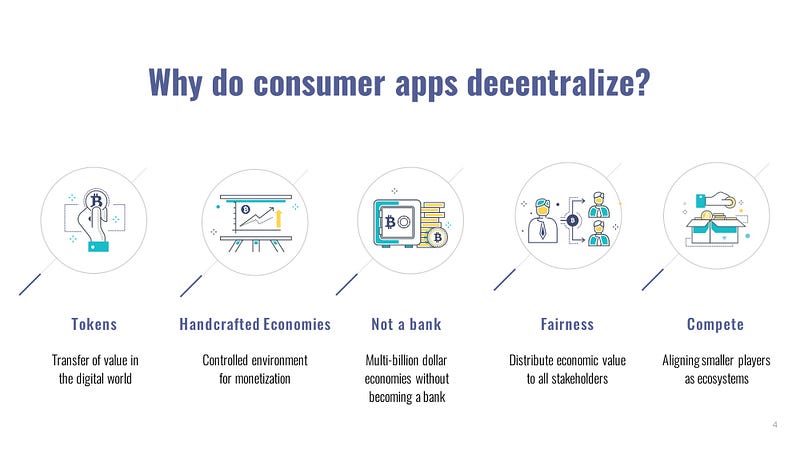


I’m just returning from NOAH — the conference that describes itself as the preeminent European event where Internet CEOs, executives and investors gain deep insights into the latest proven concepts, network with senior executives and establish new business relationships.

I had the pleasure of speaking before industry influencers like Gerhard Cromme, Chairman of the Supervisory Board of Siemens, who actually grabbed me after the talk and asked for the presentation. I wonder what he thinks about consumer internet companies like Kik Interactive transitioning to the blockchain.

The talk mostly revolved around Orbs and the challenges Orbs is set on solving. Many members of the audience were not very familiar with blockchain technology and the nuances of the field. I assume they have heard of cryptocurrencies but probably did not know how blockchain infrastructure and decentralization are applicable to their existing business.
Since many of the attendees are exactly the target audience for Orbs — established consumer businesses that already have an active user base prior to the blockchain era — I dedicated a significant part of the talk to explaining why consumer apps decentralize. This trend is definitely growing in the last year as significant consumer brands like Telegram, Kik, Overstock and Kodak are transitioning to the blockchain space.
This was the relevant slide in the talk:

Tokens are becoming the standard for the transfer of value in the digital world. They resolve many of the problems that fiat currencies traditionally suffer from. Unlike with fiat currencies, the transfer of tokens is practically instantaneous; tokens are cross-border and do not require separate implementation per geography; there are no middlemen like payment providers so fees are lower; tokens are easier to secure which also reduces fees; tokens support microtransactions; and they have inherent APIs that are easier to integrate with, programmatically.
Consumer apps are known to be difficult to monetize. Relying on a token opens up new unorthodox forms of monetization for consumer companies. Since tokens are programmable and can be designed to follow a set of predefined rules, certain incentives can be baked into the economy. This creates a controlled environment that consumer apps can use to monetize more effectively. Kin by Kik Interactive is a great example, which relies on the Kin Reward Engine to compensate consumer app developers fairly.
The economy revolving around a token can reach a value of billions of dollars. If someone had to protect this amount of value on a centralized server they probably wouldn’t be able to sleep at night. Effectively, this would be running a bank. Regulators would also step in and require that certain compliance protocols be met in order to protect consumers. This would mean following in the footsteps of PayPal and becoming more focused on compliance than on innovation. Decentralization helps reduce risk by securing the economy with multiple parties and making sure that no single party can control the ledger.
Decentralized models avoid concentrating power in the hands of the few. This creates environments that are inherently more fair. The economic value created on consumer platforms can be distributed to all stakeholders and particularly to end users. If consumers can be made to benefit from the value that they help generate on these platforms, they may no longer be looked at as being the product. This creates for a better user experience and reduces consumer abuse.
The world of consumer apps is slowly consolidating into the hands of giants like Facebook and Google. This creates an environment where smaller apps are becoming unable to compete. This ultimately goes against the interests of consumers as choice becomes more limited and innovation is diminished. Decentralization helps break monopolies by aligning smaller players together without excessive reliance on trust. This paves the way for creating ecosystems made of multiple businesses whose combined power and user base can rival the dominators of the market.
···
My hope is that some of these benefits of decentralization resonated with members of the audience that have not yet considered decentralized technologies for their business. Blockchain has the power to transform consumer apps.

We use cookies to ensure that we give you the best experience on our website. By continuing to use our site, you accept our cookie policy.